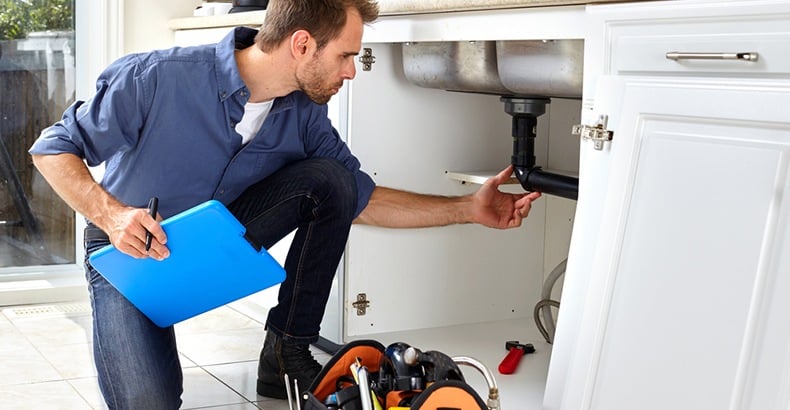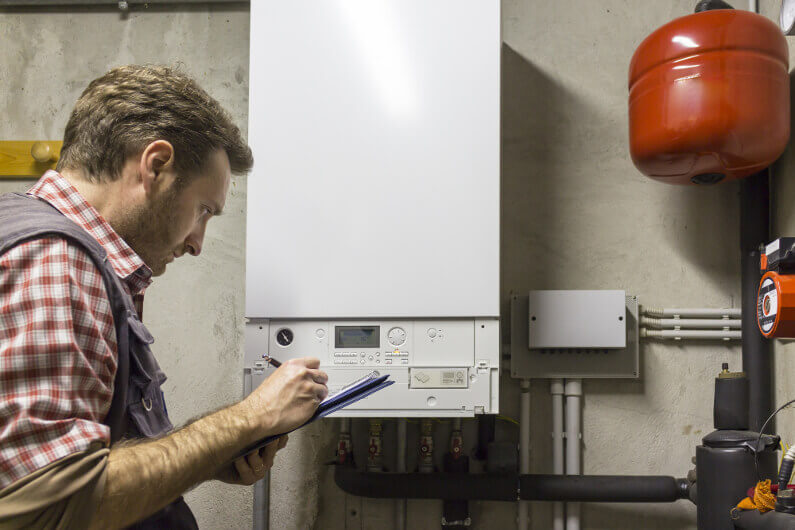Detail
Listed here in the next paragraph you can get a good deal of sensible answers around Don’t Let an Earthquake Damage Your Plumbing.

The secret to durable home appliances, unsurprisingly, is proper upkeep. There's no set rule that can assure your plumbing home appliances a lengthy wear, however you can prevent unnecessary damage as well as repair work by avoiding poor plumbing behaviors.
You should quit doing these 6 points else you'll maintain calling your plumber over for minor faults.
Flushing everything
Yes, your bathroom drainpipe results in the sewage systems, but that doesn't suggest you must discard just anything down the tubes. Numerous 'flushable' products are really excellent clog beginners, as an example dental floss. Asides maintaining apparent non-flushable products like cords and also plastics out of your bathroom, you should likewise avoid flushing cotton swab, menstrual items, wipes, daipers and also prophylactics down the toilet drain.
Pouring oil in the sink
We understand properly throwing away grease after a hearty meal is a discomfort. But simply pouring it down the tubes can do long-lasting harm to your pipelines. "The fat as well as oil can block your drainpipe badly enough to force you to call a plumber," discusses Dawson. "Plumbing functions best when it's well cared for-- not abused with grease."
Making use of too much drainpipe cleaner
Utilizing a drain cleaner greater than once or twice a month is an indicator that something major is taking place within your pipes. Currently, instead of dealing with the main concern, you choose a quick fix; a fizzy drainpipe cleaner. Rightfully, a drain cleaner will take care of the obstruction, however at what price?
The chemicals in a drainpipe cleanser can accelerate the corrosion of your pipelines. Add that to whatever underlying problem is creating the blockage and also you might have to a significant issue on your hands.
If you experience way too many blockages, call your emergency plumber instead of making use of a drainpipe cleaner.
Not rinsing recipes prior to filling them into the dishwasher
it's called a dishwasher, however tossing in meals, pots, and also pans covered in large food bits can really cause some serious damages to the device, causing long-term troubles down the line. "Homeowners might have to obtain their dishwashing machine fixed regularly if they don't wash their dishes before packing, or at least remove larger food pieces," explains Audrey Monell, proprietor of Forrest Anderson Plumbing and also Air Conditioning in Glendale, Arizona. "Food that obtains stuck on meals causes the dish washer to function harder, which can wear down components quicker, resulting in troubles."
DIYing whatever
With plumbing, a stitch in time actually does save 9. You can protect against a fullblown plumbing emergency by calling your plumber at the right time.
You might have discovered a couple of plumbing hacks from your father, however you should certainly understand where to draw a line and call a professional. As an example, you might have the ability to fix a clog on your own, but you should not try to alter a pipe. You might mismatch pipelines or overtighten a bolt, triggering even more injury and damage than you believed. Calling a plumber is a risk-free as well as inexpensive decision.
Not altering your dishwasher hoses
One very easy way to guarantee that you utilize your dish washer for several years is to replace the hose at least when in 5 years. This additionally applies for washing maker tubes.
In time, food particles, soap and also grease can create clogs within your pipelines. Replacing them on schedule will certainly prevent any type of presure build up that can damage the inner workings of your dishwashing machine or cleaning machine.
A strengthened steel intertwined tube does a fantastic task of extending your maker's usage time.
No winter months preventative measures
Severe weather conditions misbehave for your pipelines, specifically if they're made of steel. You should shield your revealed pipelines, as well as your water storage tank, even if you have a water heater. You ought to also shut off your garden hose valve and also any other external water channels. These networks are electrical outlets for cold; you pipes can begin to ice up from outdoors if you don't.
Ways That Hard Water Affects Your Plumbing And Appliances
CLOGGED DRAINS
Calcium and magnesium from hard water go beyond the drain screen that you clean. Each time water passes through the drain screen, the minerals attach to the sides of the pipes and other hard water deposits. As you continue to use the drain, more of the minerals attach to these deposits, eventually clogging the drain. Most drain cleaners remove only a small amount of the minerals, so the drain continues to run slow and back up water in your sinks, tubs, and showers.
DECREASED WATER FLOW
Do you have a faucet that runs slow even when you increase the water flow at the valve? Hard water deposits not only affect how water runs out of your home but also how water is delivered to your faucets. When calcium, magnesium, and minerals build up in pipes, it slows the flow of water and also builds up pressure inside the pipes that causes a backflow of water.
CORROSION
Calcium and magnesium have properties that are destructive to certain types of metal, many of which are used for plumbing in older homes. The minerals slowly break down the metal in your pipes. This can cause leaks, breaks, and even discolored water. If the corrosive section of the pipe is not repaired and the hard water deposits removed, entire sections of your plumbing may disintegrate. You may end up replacing a large portion of your plumbing system. Corrosion can happen on any metal surface, not just your pipes. Calcium and magnesium can also cause corrosion on your faucets, drains, valves, appliances, and fixtures.
REDUCED WATER QUALITY
You rely on your plumbing system to deliver clean water for cooking, washing your clothes, bathing, and many other daily tasks. Hard water has small particles of minerals in it. The water is safe to drink, but it is not ideal for your appliances. The minerals interfere with how soaps and detergents work to remove dirt, food, oils, and other substances. As a result, you must use more cleaning products, and your appliances have to work harder to clean dishes and clothes.
BROKEN PIPES AND LEAKS
Broken pipes and leaks from hard water happen in two ways. First, hard water is corrosive to the materials that are used in older homes. Eventually, minerals eat through the pipe and create a small opening in the side of the pipe. The opening grows larger and larger until you have a major leak on your hands. Second, the mineral deposits inside the pipes prevent water from flowing through efficiently. If the water is pushed through the plumbing at the same volume, pressure builds up, and eventually, the pipes and connections fail.
ENERGY EFFICIENCY
Hard water and mineral deposits in your plumbing affect the energy efficiency of your appliances, even the older models that do not meet modern standards. When you find a white residue on your dishes or your clothes don’t feel clean, you may find yourself running the wash cycle a second time. This requires more energy use and raises your utility bills. Some newer high-efficiency models of dishwashers and washing machines have sensors that detect when items are clean. Hard water deposits on the dishes or clothes will trigger the sensors and cause the appliance to run longer.
Another way that hard water affects your budget is the investment you make in products for hard water deposits. Rather than spending your money on higher utility costs and household products, invest in a water softening system from Beyer Plumbing Co. to prevent the problems of hard water.
WEAR AND TEAR
Hard water deposits build up on the connections, drains, and jets in your washer or dishwasher that circulate the water and clean your clothes and dishes. As a result, water may collect inside your appliances, creating the ideal environment for corrosion, mold, and other damaging substances. The components break down sooner, and your appliances may not last as long as expected. In some cases, the lifetime of an appliance may be reduced by three or four years simply due to hard water deposits. Using soft water in your appliances ensures that you get the maximum return on your investment.
https://beyerplumbing.com/9-ways-that-hard-water-affects-your-plumbing-and-appliances/

I hope you enjoyed our article on Leak Detection and Repair Without Destroying Your Home. Thank you so much for taking time to read through our article post. Are you aware of someone else who is fascinated about Leak Detection and Repair Without Destroying Your Home? Do not hesitate to promote it. Many thanks for your time. Visit us again soon.
Schedule A Free Estimate